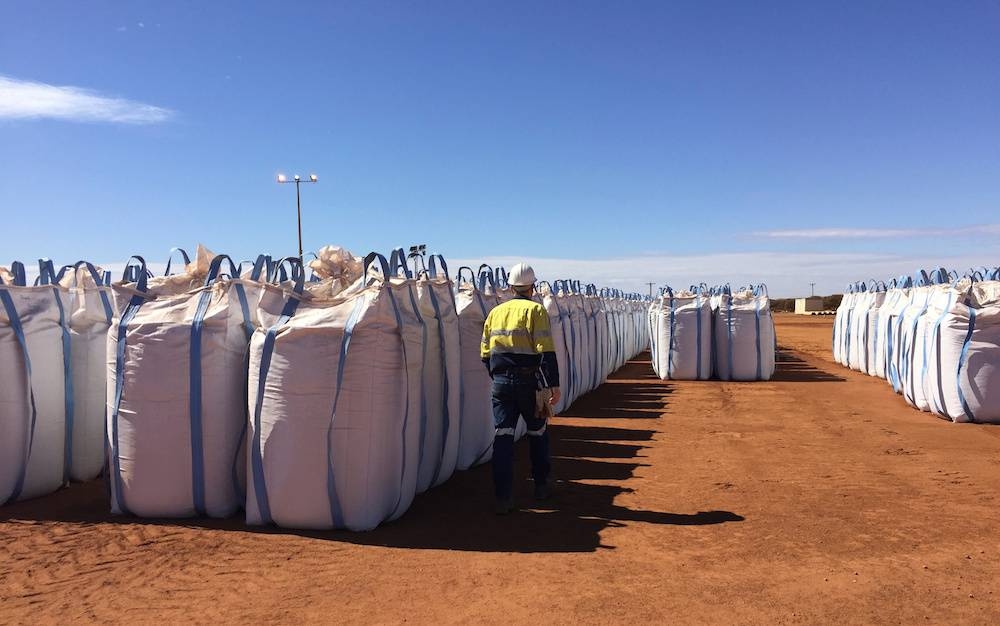Malaysia turns to China for rare earth refining
The Malaysian cabinet is sending one of its ministers to China to propose investments in a rare-earth refinery. It is unclear whether Beijing will make an exception to its ban on the export of technologies for the extraction and separation of rare earths. A local plant is also designed to cut a thriving illegal trade in critical minerals.
Kuala Lumpur (AsiaNews/Agencies) – Malaysia is turning to China to develop its rare earth elements (REEs) and reduce illegal mineral exports.
According to the Straits Times, Malaysia’s Minister of Science, Technology and Innovation Chang Lih Kang is set to visit China in late April to find an investor in a processing plant in Malaysia.
Although China banned the export of technologies for rare-earth extraction and separation last December, Malaysia hopes to convince Chinese authorities to make an exception to set up an alternative supply chain.
“We are going to explore opportunities to play a greater role in the rare-earth supply chain,” Minister Chang said.
China, which had an estimated 44 million metric tonnes in rare earth reserves in 2023, produces more than 60 per cent of the world’s total mined output of REEs, and accounts for 85 per cent of rare-earth processing capacity, holding a de facto monopoly.
Rare earths are a group of minerals crucial the production of modern technologies, from wind turbines and electric car batteries to smartphones to ballistic missiles. Despite their name, they are found in great quantities in some countries.
Malaysia already has a processing plant, the largest outside China, operated by Lynas, an Australian company, but at present it lacks the capacity to process locally mined ore.
China, on the other hand, is the only country that has the technology to process all 17 elements that make up the rare earth group.
Malaysia has over 16 million tonnes of non-radioactive REEs, valued at around RM 800 billion (US$ 170 billion), Natural Resources and Environmental Sustainability Minister Nik Nazmi Nik Ahmad said in June 2023, but some experts believe that increasing demand could push their value to RM 1 trillion (US$ 212 billion).
According to trade data for 2023, Malaysia exported RM 975 million (IS$ 205 million) in REEs to China, making it China’s second-largest source of mineral imports after Myanmar.
For Malaysia, the construction of a rare-earth refinery in Malaysia would cut back on illegal exports.
Last week, Minister Nik Nazmi told parliament that only 3,000 tonnes, or less than a sixth, of the 19,000 tonnes of rare-earth oxide produced by China in 2023 from Malaysian ore came from legal exports. That is a loss of RM 200 million (US$ 45 million).
For this reason, a ban on the export of unprocessed rare earths came into force at start of the year.
Only one legally certified mine has received an exemption until the end of March, when it must decide whether to shut down or begin costly stockpiling.
In September, Malaysian Prime Minister Anwar Ibrahim said that the ban was aimed at "guarantee[ing] maximum returns for the country".
The Malaysian government expects the rare earth industry to add RM 9.5 billion ringgit (US$ 2 billion) to GDP and create 7,000 new jobs by next year.
Experts warn though that the ban will have no effect on rare earth smuggling. “Fines for such (smuggling) offences can be as low as RM 10,000 (US$ 2,100), which a smuggler can make in a day,” a source told The Straits Times.
The Malaysian government promised to draft a plan for rare-earth processing, but it is presently on hold.
In the meantime, lawmaker Howard Lee Chuan How has been appointed to head a new parliamentary caucus on critical minerals. "We need to have a Petronas of critical minerals," Lee said, referring to the state-owned oil and gas company.
For Lee, Malaysia needs industry-specific rules instead of relying on general mining regulations to make the sector profitable and counter illegal exports.
18/07/2022 11:55







.png)










